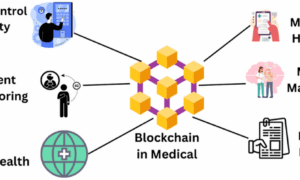Introduction to Emotional Resilience
Emotional resilience, the capacity to endure pressure and recover from adversity, is crucial in maintaining a healthy lifestyle. This form of resilience enables individuals to face life’s inevitable trials without succumbing to stress and anxiety. In our omnipresent hustle culture, where pressures mount from various fronts—work, relationships, or personal goals—emotional resilience is an invaluable skill to nurture. It empowers individuals to manage their stress and emerge stronger, paving the way for personal growth and satisfaction.
Why Emotional Resilience Matters
Arguably, the significance of emotional resilience cannot be overstated. It acts as a buffer against various mental and emotional disorders, significantly reducing the impact of depression, anxiety, and chronic stress. Individuals with strong resilience are better equipped to handle life’s curveballs and enjoy a heightened sense of health and happiness. Find out more now about techniques designed to boost emotional resilience and support mental well-being. According to findings presented in the Stress in America report, those who proactively cultivate their resilience experience more consistent mental health improvements over time than their less resilient counterparts. This illustrates that resilience is essential for maintaining emotional balance and long-term psychological health.
Characteristics of Resilient People
Resilient individuals typically exhibit common characteristics that help them navigate life’s turbulent waters. Optimism reigns supreme among these traits, enabling individuals to see the light at the end of the tunnel, even in the direst of situations. Additionally, robust problem-solving skills equip them to dissect challenges and derive feasible solutions. A noteworthy aspect of resilient people is their readiness to seek help and strong communication abilities. Such individuals are often surrounded by a supportive network of friends and family, which forms an essential safety net during hard times. Finally, a defining feature of resilient individuals is their unwavering sense of purpose, which provides direction and motivation during life’s unpredictable journey.
Strategies to Cultivate Emotional Resilience
Cultivating emotional resilience involves adopting daily practices and habits that support mental strength. Here are some effective strategies:
- Mindfulness and Meditation: Mindfulness and meditation exercises can significantly enhance one’s emotional state by cultivating a calm and present-focused mind. Regular meditation helps individuals manage stress better by lowering cortisol levels, fostering tranquility, and enhancing emotional regulation.
- Physical Activity: Exercise serves as a powerful antidote to stress and anxiety. Engaging in physical activities releases endorphins, nature’s stress relievers known to boost mood and energy levels. Regular exercise also encourages better sleep, further contributing to a resilient mindset.
- Strong Support Network: Human beings are inherently social creatures, and maintaining healthy relationships can provide significant emotional support during tough times. A robust support system rooted in trust, understanding, and empathy is vital for anyone navigating life’s challenges.
Integrating Resilience Practices into Daily Life
The journey to building resilience is achieved by consistently incorporating practices that promote well-being into everyday life. Beginning with small steps is often the most sustainable approach. Incorporating short mindfulness exercises or writing a daily gratitude journal can have profound impacts over time. These practices may seem trivial initially, but their cumulative effect fosters strength and resilience, equipping individuals to face stressors gracefully. As consistency is maintained, an individual starts noticing enhancements in their resilience and overall mental well-being.
The Role of Nutrition in Emotional Resilience
Nutrition is indispensable in creating a foundation for emotional and psychological fortitude. A well-rounded diet enriched with essential nutrients like omega-3 fatty acids, complex carbohydrates, and vitamins supports brain health and stabilizes mood fluctuations. Good nutrition not only catalyzes physical health but also shields mental well-being. Consult the Dietary Guidelines for Americans for comprehensive strategies on maintaining nutritional health that underpin emotional resilience and support nerve functions critical for emotional regulation.
Real-Life Examples of Resilience
The real world overflows with stories of resilience that inspire and teach us valuable life lessons. From communities rebuilding after devastating natural disasters to individuals triumphing over personal challenges, the common thread is resilience. These stories serve as motivational beacons, illustrating that individuals can rise from the ashes like a phoenix through determination. Such examples underscore the idea that resilience is not confined to a select few; rather, it is a skill that can be cultivated, honed, and mastered over time. Observing others who have exhibited resilience can offer practical insights and guide one’s resilience-building efforts.
Conclusion: Building a Resilient Future
Adapting and growing stronger through life’s vicissitudes becomes increasingly essential as life evolves. Building resilience requires dedication to consistent practice and a commitment to emotional health. By embracing change and consistently engaging in resilience-enhancing activities, individuals can navigate life’s journey more effectively, achieving balance and fulfillment. Emotional resilience is a transformative force that enhances personal well-being and fortifies individuals for future challenges. Engaging in these practices promises a resilient future equipped with the strength to handle adversity and the wisdom to use it for growth.



































